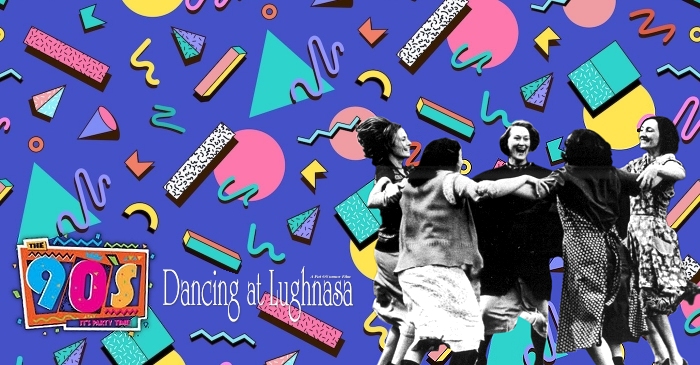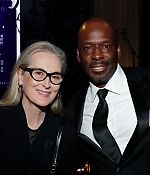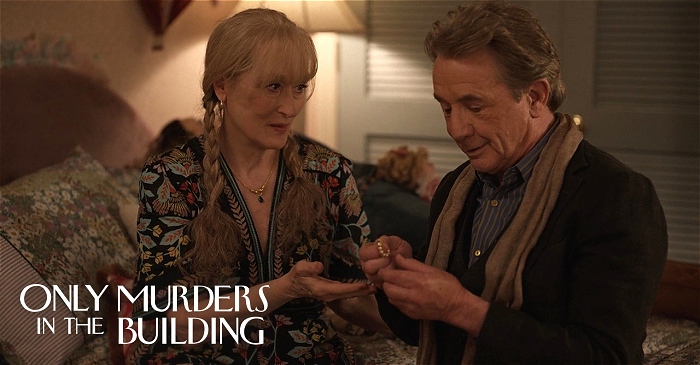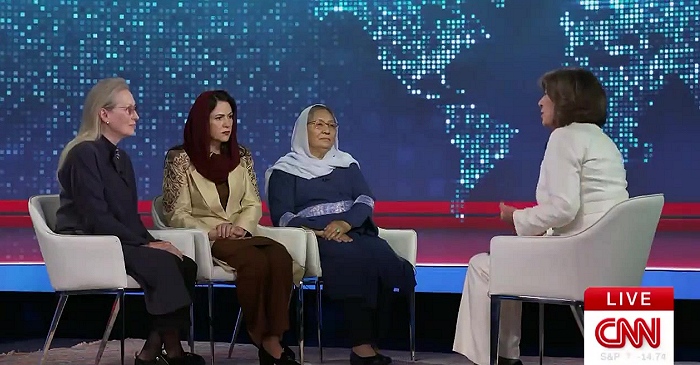

„Dancing at Lughnasa“ remais a curiosity in Streep’s filmography, but a lovely one. Brian Friel’s play about five unmarried sisters in 1930s Ireland was a runaway hit after ist 1990 premiere in Dublin and later London, winning the Olivier Award for Best Play, followed by its transition to Broadway the next year and winning the Tony for Best Play and a Best Featured Actress award for Brit Brennan. But besides its success on the stage, „Lughnasa“ was never a dead-ringer to become a box office hit in theatres. Streep’s casting secured the film an international spotlight and decent reviews, but it struggled to find a mainstream audience. Today, „Dancing at Lughnasa“ reigns among Streep’s fine work in the 90s, but is often forgotten to be mentioned at all.
Friel’s story explores themes which were central to Irish cinema and to Irish culture more generally in the 20th century, namely, emigration; the position of women in Ireland (rural) society, including illegitimacy, being unmarried and working at backbreaking labour; the relationship between the legacy of popular ‘pagan’ religious practice and the institutional church; and the point-of-view of a young boy recalling his childhood and the events which formed him. In 1936, five sisters live in quiet desperation in the small town of Ballybeg in Donegal.The eldest sister, Kate, a local schoolteacher is a woman of rigid beliefs. On the surface she is a formidable woman,a little feared but deeply loved by all of her sisters, especially Maggie, who has a kind benevolent heart, a wicked sense of humour and a wild fondness for life. Agnes is a quiet, deep woman with secret reserves of courage. She is devoted to Rose, who is simple, frightened of no danger because she does not know any. Rose has embarked on a relationship with a local married man, Danny Bradley much to the concern of her sisters. Christina, the youngest, has defied the strict morality of her society and given birth to a love child, Michael. All of their lives are thrown into turmoil by the re-emergence of two men. The first is their brother Father Jack, a missionary long lost to the ways of African culture who has returned home. The second man is Gerry Evans, Michael’s father – a Welsh travelling salesman who sweeps in and out of Christina’s life as if he had no cares or responsibilities in the world. He has returned to see his son and to stir Christina’s emotions up once more before leaving to fight in the Spanish Civil War. The impending arrival of a woollen factory threatens what paltry income Agnes, Rose and Christina earn from knitting gloves and falling school numbers leaves Kate without a job. As the oldest sister, Kate feels responsible to keep the family dynamics together, in the most stubborn way possible.









